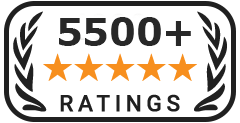Incontinence Products: A State of Confusion
The average person buying incontinence products for the first time, wastes $130.
Consumer Research Validates Consumer Confusion
Kimberly-Clark, makers of market leading brands, Depend and Poise claim that people who buy incontinence products for the first time, waste, on average, $130 on trial and error until they find a product to best meet their needs. That’s about 10 bags of products that can’t be returned once opened.
What is causing this state of confusion?
Lack of segment naming standards
There are no naming standards for styles, and the descriptions are changed frequently. For example, undergarments are now called shields, even though there were shields that were a different product form. Depend briefs are now called Protection with Tabs while Depend Pull-On underwear is now referred to as briefs (which used to be the big adult diaper with tape tabs).
Lack of absorbency standards
There are no standards for describing absorbency levels. One manufacturer’s most absorbent product is “extra absorbency,” while another’s is “super plus.” How does an individual decide?
Here is a quote from a product user: “I would really like incontinence product companies to stop using names for products like "extra", "extra plus", "super", "super plus", "ultra". I mean what do those words even mean relative to each other?”
Confusing and non standardized absorbency icons
Each of the brands represents absorbency in a different fashion – some with drips, some with cups, others in ounces and some in ML’s. Some use dots or an absorbency scale. In February 2014, Poise changed from showing colored in pads to signify absorbency and went to drips. And, all of these icons are on different sides of the package depending on the brand. Who wants to stand in the isle looking for and trying to compare all this information? And once you figure it out, they change the packaging again when a new set of marketers takes over.
Nomenclature used to describe products is not easily understandable, especially when trying to compare brands. For example, there are ultra-thin pads, ultra-thin with wings, ultra-thin long, and moderate and maximum - yet the maximum version is not as absorbent as ultimate. This is how just one manufacturer describes its pads; another uses its own descriptions, such as moderate, heavy and overnight. How does one decide?
To make it even more confusing, in 2013 the TENA people decided that people don’t want to shop by absorbency. They want to shop by ‘occasion’. So rather than using the same descriptors as the market leading Poise brand, they set themselves on an island by themselves by introducing three new descriptors – Active, Stylish and Anywhere. Since they have a small share of the incontinence category (10%) why would they not want consumers to be able to easily compare against the market leading brand, Poise? This just makes no sense to if you are wanting to grow your brand.
With all the styles, sizes, absorbencies and brands, what will work best? Many people buy what they think they need, and find out at home the fit is wrong or the absorbency isn’t sufficient, which leads to wasted money and time. That’s why the average new category entrant (NCE) wastes $130 in trial and error mode.
Too Much Confusing Happy Talk
By last count, there were at least 203 confusing 'happy talk' feature descriptors. Examples include
- Absorb-Loc Core
- Air Dry Layer
- AZS Advanced Zoning System
- Award-Winning Confidence
- Blue Stay Dry Strip
- Comfort Dry Cover
- Diamond Linear-Channeling (DLC)
- Dry Fast Core
- Fearless Protection
- Incontek Technology
- Integra Mat Bonding
- Multiple Insults
- OdaSorb Plus
- Reduced Roping
- Space Age Technology
- Strategic Placement of Super Absorbent Polymer
- The Unexpected Leak (versus the expected one?)
- Sam in my Pants
- Three Dimensional Network of Fibers
- Water PF Backsheet
- Worry Free Protection
- Zoned Body Fit
A person can’t rely on help from the big box stores or internet only websites. Today’s pharmacists are filling twice as many prescriptions as they were just 10 years ago and often don’t have time to come out from behind the counter. And the 18-year-old stock person in the isle doesn’t have the answers, even if you could find one in a store nowadays. Another common problem is running out of products and finding your store is out of stock and being told “there might be more in tomorrow afternoon.”
Most internet sites are just that – internet sites. There is no one you can actually speak with who is knowledgeable and ca help answer questions about incontinence products – even Amazon. Amazon offers ‘gift wrapping’ on Depends and you can add them to your ‘Wish List’. They don’t understand what consumers want. No one wants them gift wrapped or ‘wishes’ for incontinence.
Follow the tampon example
- Light (8-10 oz)
- Medium (11-20 oz)
- Heavy (21-30 oz)
- Maximum (31+ oz)
It is unlikely the incontinence manufactures will ever get together to agree on something like this.
The answer is real help from real people
Consumers want answers to their incontinence product questions: which product is best for my needs and which should I buy? The CareGiver Partnership provides personal help by an all-female team of knowledgeable Product Specialists who have each been a caregiver to a loved one. Since this is their only business, they know incontinence products inside and out.


 FREE SHIPPING ON ALL ORDERS OVER $70
FREE SHIPPING ON ALL ORDERS OVER $70